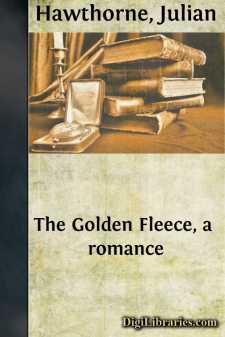Categories
- Antiques & Collectibles 13
- Architecture 36
- Art 48
- Bibles 22
- Biography & Autobiography 813
- Body, Mind & Spirit 142
- Business & Economics 28
- Children's Books 14
- Children's Fiction 11
- Computers 4
- Cooking 94
- Crafts & Hobbies 4
- Drama 346
- Education 46
- Family & Relationships 57
- Fiction 11828
- Games 19
- Gardening 17
- Health & Fitness 34
- History 1377
- House & Home 1
- Humor 147
- Juvenile Fiction 1873
- Juvenile Nonfiction 202
- Language Arts & Disciplines 88
- Law 16
- Literary Collections 686
- Literary Criticism 179
- Mathematics 13
- Medical 41
- Music 40
- Nature 179
- Non-Classifiable 1768
- Performing Arts 7
- Periodicals 1453
- Philosophy 64
- Photography 2
- Poetry 896
- Political Science 203
- Psychology 42
- Reference 154
- Religion 513
- Science 126
- Self-Help 84
- Social Science 81
- Sports & Recreation 34
- Study Aids 3
- Technology & Engineering 59
- Transportation 23
- Travel 463
- True Crime 29
Archibald Malmaison
by: Julian Hawthorne
Description:
Excerpt
Introductory.
When I was a child, I used to hope my fairy-stories were true. Since reaching years of discretion, I have preferred acknowledged fiction. This inconsistency, however, is probably rather apparent than real. Experience has taught me that the greater the fairy-story the less the truth; and contrariwise, that the greater the truth the less the fairy-story. In other words, the artistic graces of romance are irreconcilable with the crude straightforwardness of fact. The idealism of childhood, believing that all that is most beautiful must on that very account be most true, clamors accordingly for truth. The knowledge of maturity, which has discovered that nothing that is true (in the sense of being existent) can be beautiful, deprecates truth beyond everything. What happens, we find, is never what ought to happen; nor does it happen in the right way or season. In palliation of this hardship, the sublime irony of fate grants us our imagination, wherewith we create little pet worlds of poetry and romance, in which everything is arranged in neat harmonies and surprises, to gratify the scope of our little vision. The actual world, the real universe, may, indeed, be picturesque and perfect beyond the grandest of our imaginative miniatures; but since the former can be revealed to us only in comparatively infinitesimal portions, the miniatures still have the best of it.
To preface a story with the information that it is true, is not, therefore, the way to recommend it. Your hearer's life, and those of his friends, are enough true stories for him; what he wants of you is merciful fiction. Destiny, to his apprehension, is always either vapid, or clumsy, or brutal; and he feels certain that, do your worst, you can never rival the brutality, the clumsiness, or the vapidity of destiny. If you are silly, he can at least laugh at you; if you are clumsy or brutal, he has his remedy; and meanwhile there is always the chance that you may turn out to be graceful and entertaining. But to bully him with facts is like asking him to live his life over again; and the civilized human being has yet to be found who would not rather die than do that.
No; we are all spontaneously sure that no story-teller, though he were a Timon of Athens double distilled, can ever be so unsympathetic and unnatural as destiny, who tells the only story that never winds up. We cannot understand destiny; we never know to what lengths she may go: but the story-teller we know inside and out; he is only a possible ourself, and we defy him to do us any serious harm. I trust I am rendering my meaning clear, and that no one will suppose that in making this onslaught upon truth, I have anything else in view than truth as applied to what are called stories. With truth scientific, moral, religious, I am at present in nowise concerned. Only, I have no respect for the weakness that will outrage a promising bit of narrative for the sake of keeping to the facts. Imbecile! the facts are given you, like the block of marble or the elements of a landscape, as material for the construction of a work of art....











